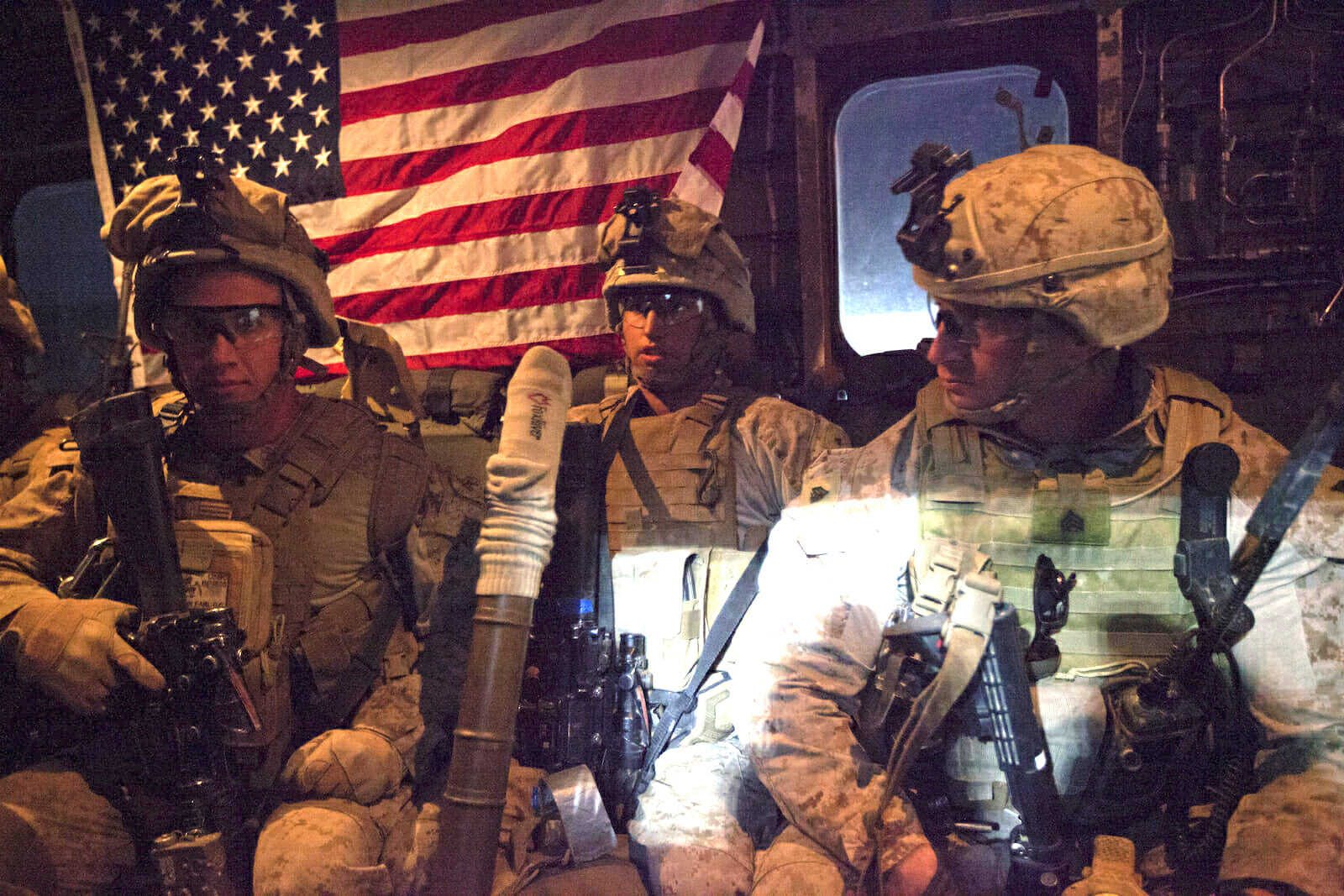
The Case for the Staying in Afghanistan
The war in Afghanistan has been expensive. Thousands of American lives have been lost, and hundreds of millions of taxpayer dollars are still being spent there on a daily basis. My hope is that this war – the longest in American history – will teach the next generation of foreign policy leaders a few lessons about conflicts and foreign interventions. However, this war was necessary. Those behind the terrorist attacks of September 11 had to be brought to justice, and they have been. Moreover, for Afghanistan to become a stable, democratic, and prosperous country, the United States must continue its involvement in the country because the consequences of a sudden withdrawal would be cataclysmic.
The Obama administration knows this well, of course. This is why Secretary of State John Kerry and other high-ranking officials have been visiting Kabul frequently in recent months. We do not have to wait to see what would happen in Afghanistan if the American troops were to leave; the fallout from the Iraq withdrawal provides a sufficient cautionary tale. To say that Iraq is unstable is to state what is overwhelmingly obvious. The sectarian tension between the Shia and Sunni insurgents in Iraq has intensified to such a degree that it is threatening the survival of the current democratic regime. Certainly, hope has not died in Iraq, and most likely, the nation’s ample resources and great potential for economic growth will eventually enable the country to recover from its present instability. However, it is abundantly clear that the withdrawal of U.S. troops has greatly compromised the country’s ability to weather political shocks.
The situation in Afghanistan is likely to grow far worse than the situation in Iraq for three reasons.
First, Afghanistan is a poorer country than Iraq, and the state lacks sufficient resources to support its armed forces (army and police). Second, Afghanistan’s infrastructure is much weaker than Iraq’s, and as such, Afghanistan is far from being ready to begin its march toward modernization and development. Third, even though Afghanistan is not currently suffering from a Shia-Sunni conflict, and even though the prospect of such a conflict is unlikely in the future, Afghanistan is still profoundly unstable.
The nation has been at war for over three decades, and many warlords throughout the country are vying for control. These warlords, in anticipation of the U.S. troops’ departure from Afghanistan in 2014, are preparing to attempt to seize power. Clearly, the stakes in Afghanistan are much higher than they were in Iraq in 2011 when the United States left that country.
Some individuals have argued that a hasty U.S. troop draw-down in 2014 might be reasonable. These individuals believe that the United States should leave Afghanistan because, as they see it, the U.S. has achieved its mission of killing Osama bin Laden and paralyzing al-Qaeda’s operational structure. These people further reason that Yemen and Somalia harbor more al Qaeda operatives than does Afghanistan. What these people fail to recognize, however, is that the United States has significant geopolitical interests in Afghanistan and the surrounding region.
Not least among these geopolitical concerns is Afghanistan’s southern neighbor, Pakistan, whose nuclear arsenal presents an incipient threat to the world order. Make no mistake: Pakistan is quickly becoming the most dangerous country in the world. Pakistan is neither politically stable nor economically developed, save in the capital city of Islamabad. History axiomatically illustrates that when political stability and economic development are lacking in society, anarchy and chaos ensue. Western leadership is not ignoring the threat posed by Pakistan: British Secretary of State for Defense Liam Fox argued not long ago that it is Pakistan, not Syria, that most threatens regional stability, and that Pakistan also presents a greater threat than any other country to the peace of the civilized world.
Mr. Fox and others involved in the security and intelligence apparatus of the United States and Great Britain, while aware of the threats emanating from Pakistan, have failed to persuade Pakistan to address these issues. There are many reasons for this, but the fact that Pakistan has been an indispensable player in the War on Terror makes it hard for NATO to push Pakistan to the negotiating table. Without Pakistan’s support, transportation of commodities to Afghanistan would have been a nightmare. While the U.S. is not in a position to tackle all the problems plaguing Pakistan, the U.S. would at least be wise to mitigate those problems. Maintaining a presence in Afghanistan will facilitate those mitigation efforts.
Iran, like its eastern neighbor Afghanistan, also aspires to become a nuclear power. There is no other potential development that, if it were to occur, would be more menacing to global order and the balance of power in the region than Iran’s development of nuclear weapons. Iran is already a troublemaker in the region. Should it acquire nuclear weapons, it will become a far more dangerous player, as the country will be in a position to negotiate from a position of greater power. Leverage is an important weapon in the arsenal of foreign policy, and it is not one that the U.S. would be pleased to see Iran acquire.
In his Foreign Affairs article “Why Iran Should Get the Bomb,” Kenneth Waltz advanced an opposing line of argument. One of his arguments was that, even if Iran gets the bomb, “It is for the purpose of providing its own security, not to improve its offensive capabilities.” While this may be the case, the nuclear capability will make Iran behave in a completely different manner than it has heretofore. Iran will become far more antagonistic to its neighbors, prompting Saudi Arabia and other players in the region to weaponize. According to the National Intelligence Council’s “Global Trends 2030” report, “Endemic rivalries— such as between Iran and its neighbors—would be inflamed if Iran decided to develop nuclear weapons. Many of these conflicts, once begun, would not be easily containable and would have global impacts.” This outcome will pose an imminent threat to Israel as well as to broader U.S. interests in the region. It is of supreme importance for the U.S. to continue its involvement in Afghanistan so that the U.S. will be able to continue to monitor Iran and its activities.
The U.S.’s continued involvement in Afghanistan will also have important repercussions in the region to the north of the country, namely, the five republics of Central Asia: Tajikistan, Uzbekistan, Turkmenistan, Kyrgyzstan, and Kazakhstan. These newly independent countries in the center of Eurasia possess an abundance of natural resources. Quoting Bill Richardson, former Secretary of Energy and U.S. Ambassador to the United Nations during the Clinton years, German journalist Lutz Kleveman wrote that the U.S. is involved in Central Asia not only to defeat al Qaeda but also to “diversify [its] sources of oil and gas [and to] prevent strategic inroads by those who don’t share [its] values.” Russia and China, who are becoming heavily involved in the region, do not share U.S. values and interests. A U.S. exit from Afghanistan will create a vacuum and encourage the expansion of Russian and Chinese control over natural resources in the region.
Although these northern neighbors to Afghanistan are certainly worrying, the central concern to the United States at the moment is the global behemoth directly to Afghanistan’s east: namely, China. To be sure, China needs to be involved in Central Asia, not only in order to keep tabs on separatist groups in the western Xinjiang province, which are naturally disposed to align with Islamic peoples in the region, but also in order to continue to meet the needs of its 1.3 billion people. Indeed, the abundant supplies of natural gas and oil possessed by the five republics of Central Asia are resources that China desperately needs if it is to continue its economic modernization.
As the Middle Kingdom becomes increasingly economically secure and powerful, it will follow the ancient formula and make efforts to dominate its region. The more power China accumulates on the world stage, the more fear and paranoia it will feel as to its own security. Professor John Mearsheimer writes in “Why China’s Rise Will Not Be Peaceful” that, “Survival is a state’s most important goal because a state cannot pursue any other goals if it does not survive.” The basic structure of the international system forces states concerned about their security to compete with one another for power. The ultimate goal of every great power is to maximize its share of power and eventually to dominate the global system. However, Mearsheimer writes, “Great powers behave aggressively not because they want to or because they possess some inner drive to dominate, but because they have to seek more power if they want to maximize their odds of survival.” It is only through expansion and accumulation of power that great power can assure its own survival.
It is precisely the fear of the growth of Chinese regional influence that is undergirding the United States’ “Pivot to Asia.” Currently, as Prof. Mearsheimer has very powerfully argued, the United States is the only country that is a hegemon on its continent. Having no rival in the western hemisphere, the United States is free to roam around the world and engage in all sorts of foreign policy adventures. However, the U.S. does not want to see China occupy a similar position of power in Asia, and the U.S. will do everything it can to stop such a development. Given this fact, it is quite relevant that, of all the countries in Asia and Eurasia, it is Afghanistan that offers the United States the best position from which to keep an eye on China.
As this essay has discussed, the U.S.’s presence in Afghanistan over the last 13 years has enabled the U.S. to advance its interests effectively in several regional geopolitical issues. A sudden exit from Afghanistan in 2014 could prove irreparably detrimental to U.S. interests in Central Asia and beyond.

